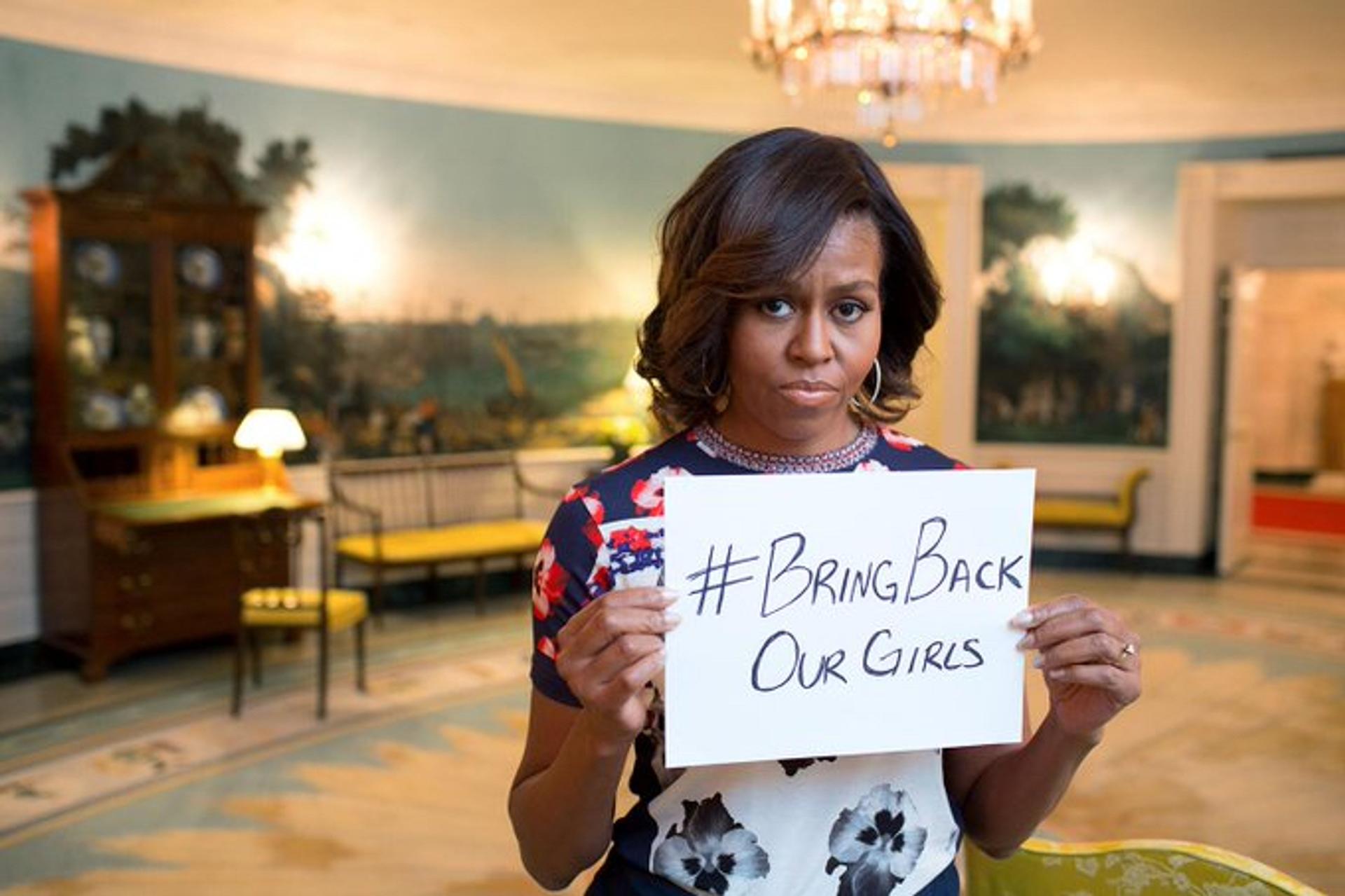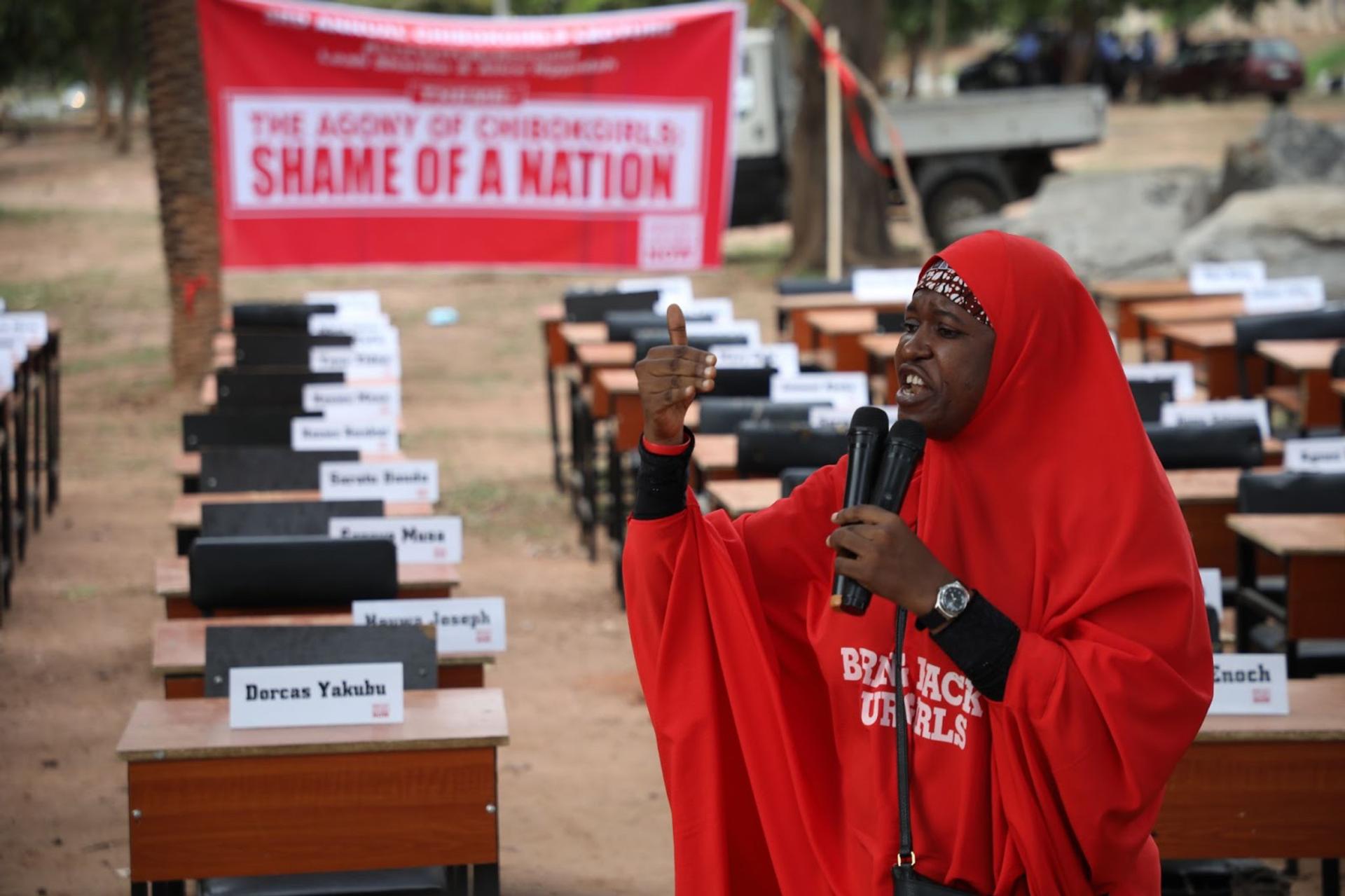The News
LAGOS/KANO — Ten years after nearly 300 girls were abducted from a school in the northeast Nigerian town of Chibok by jihadist group Boko Haram, a third of them are still being held and mass kidnappings have become a lucrative industry for criminal gangs across the country.
The Chibok girls were kidnapped on April 14, 2014. Raiding a government girls’ secondary school that night, terrorists forced teenage girls onto trucks and drove them away through bush paths to a 128,000-acre forest. Of the 276 abducted girls, those who have regained freedom include 57 who jumped off the trucks and 128 others freed after negotiations with Boko Haram or found in neighboring countries.
The most recent rescue happened last year with the return of 5 girls who were found with seven children they had given birth to during captivity. Overall, 21 of the freed girls returned with 34 children, according to a report by Murtala Muhammed Foundation (MMF), a gender and policy advocacy non-profit in Lagos. About a third of the kidnapped girls are believed to still be held by Boko Haram.
Families of the still-captive Chibok girls have made new appeals to the Nigerian government to rescue their children. A group of parents sent a letter to Nigeria’s first lady this week, MMF’s chief executive Aisha Muhammed-Oyebode told Semafor Africa.
Nigeria’s inability to reunite the remaining girls with their families a decade later represents “a failure of intelligence and governance, and we still don’t have a rapid response warning system when school children are abducted,” Muhammed-Oyebode said.
In this article:
Know More
Campaigns calling for the girls to be rescued began weeks after the abduction, through demonstrations mostly organized by women’s rights groups. It sparked the globally viral social media tag #BringBackOurGirls which was amplified by influential figures like then-U.S. First Lady Michelle Obama. Arts projects, including a new film ‘Statues Also Breathe’ by French artist Prune Nourry and the Obafemi Awolowo University, have kept the tragedy in the popular consciousness.
Abductions have affected between 1,400 and 5,000 school children since 2014, according to various estimates. Instances include the 2018 kidnap of about 110 girls in Dapchi — a town 170 miles from Chibok — and this year’s abduction of 137 primary school children in Kaduna, near Nigeria’s capital Abuja. Both sets of children were freed within weeks of their kidnap, according to government officials, though five Dapchi girls died in their captor’s custody.
One Dapchi girl, Leah Sharibu, has been held for not renouncing her Christian faith, the U.S. Commission on International Religious Freedom, a federal government agency, said.

Alexander’s view
The Chibok abductions earned Nigeria a reputation for being one of the world’s most unsafe places for schoolgirls — a reputation the country has failed to shake off.
Instead, a kidnap-for-ransom economy has developed over the last decade. “The abduction of Chibok girls has absolutely inspired the generation of bandits we have now,” Yahuza Getso Ahmad, a security consultant in Abuja, told Semafor Africa.
Abductions of school children and older residents have morphed into a big industry, moving beyond being vehicles for ideological denunciations of Western education. Bush-dwelling criminal gangs — most commonly called bandits — compete against one another for access to firearms from gun runners in the Sahel and Libya, and take advantage of Nigeria’s economic hardship to source a steady supply of local foot soldiers, say analysts.
Nigeria’s rural northwest has become the epicenter of this phenomenon, although kidnappings take place nationwide. The gangs attack vulnerable communities without structured policing systems, often injuring residents, and seizing property and humans for ransom.
Several proposals since Chibok to protect Nigerian school children — including a UN-backed $30 million ‘Safe School Initiative’ — have raised hope for a definite end to abductions without fulfilling their promise. Security reinforcements and legal reform must be complemented by efforts to tackle the root causes of conflict, extremism and educational inequality, MMF’s report argues.
Chibok ultimately reflects the reality of Nigeria’s treatment of her girls in homes and society at large. Attacks against them will not end until the culture changes, Muhammed-Oyebode told me.
Room for Disagreement
In March, President Bola Tinubu said Nigeria will no longer pay ransoms for abductions. His comments followed the most recent mass kidnapping in Kaduna. But some analysts are skeptical about the prospect of state governments adopting this approach because ransom payments have been normalized.
Kabiru Adamu, a security consultant in Lagos, believes governments have been engaged in negotiations with bandits to curtail their operations but not every warlord has been contacted. “So when you see a mass abduction, it could be that [the perpetrators] are showing that they are capable and want to be recognized,” Adamu said.
Notable
- Campaigners for the return of girls abducted by Boko Haram face a dilemma: some girls — some of whom already have children — choose to be with or return to their captors, as journalist Adaobi Tricia Nwaubani described in a 2018 report in the New Yorker.
